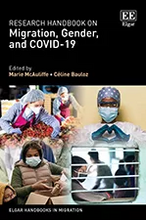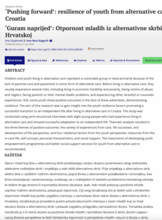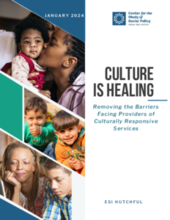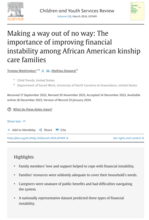Displaying 151 - 160 of 14145
This session is designed to enhance understanding of intersectionality by hearing the voices of 26 care-experienced children and young people from minoritised backgrounds. The purpose is to ensure frontline social workers have a stronger understanding of the complex identities and needs of children and young people as they journey through care.
Family for Every Child is launching the global inter-agency guidance on supporting kinship care aimed at policy makers and programme managers. The guidance aims to convince governments, UN agencies and NGOs of the need to prioritise support to kinship care, and outlines the key components of this support, providing examples of promising practice.
This chapter is part of the "Research Handbook on Migration, Gender, and COVID-19" and explores the gender and youth dimensions of return from GCC States to the East Africa subregion, focusing on three countries: Uganda, Kenya and Ethiopia.
The aim of this research was to gain insight into the youth resilience factors promoting a successful transition to an independent life after living in alternative care in Croatia. The study was conducted using semi-structured interviews with eight young people who had experience living in alternative care and showed successful adaptation to an independent life.
Ensuring child and family well-being requires a radically different, anti-racist response of supports that center the voices of diverse children and families of color, are dignified and strengths-based, and that are offered in spaces they trust. As this brief highlights, community-based organizations across the U.S. are striving to answer that call despite numerous barriers. This brief lifts up the voices of those community providers, with the goal of highlighting and addressing the barriers that stand in the way of all families having the support they need.
This webinar explored the role of the Catholic Church in responding to children who are migrating alone or who are at risk of or have been separated from their families in the context of migration.
During this webinar, participants will explore the role of the Catholic Church in responding to children who are migrating alone or who are at risk of or have been separated from their families in the context of migration. How does Catholic social teaching inform faith communities’ responses to unaccompanied and separated children in the context of migration? How do Catholic principles and practices interact with government policies and public perceptions related to immigration?
Are you working for a residential care organization that wants to move toward providing family care for children? The 2024 Moving Toward Family Solutions (MTFS) Micro-Grant Cohort may be a good fit for you. The MTFS Cohort is a one-year program developed to thoughtfully explore and prepare for the process of moving from residential care toward family-based care for children.
This study examined African American families who are providing informal kinship care in the U.S. with the aim of developing a nuanced understanding of the financial characteristics, challenges, and coping strategies of these families.
An alarming connection exists between residential care facilities, such as orphanages and children’s homes, and human trafficking. Orphanage trafficking occurs when children from vulnerable families are actively recruited into residential care for profit or other forms of exploitation within the orphanage. Often a child finder is hired by an orphanage to go out and recruit children through deception or coercion of family members.




